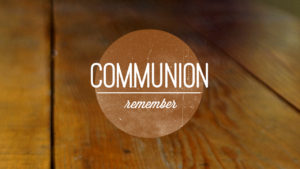
Bo (Exodus 10:1 – 13:16)
“When you come to the land which the Lord your God will give you, as he has promised, you are to observe this ceremony. When your children ask you, ‘What do you mean by this ceremony?’ say, ‘It is the sacrifice of the Lord’s Passover, because he passed over the houses of the people of Israel in Egypt, when he killed the Egyptians but spared our houses.’ The people of Israel bowed their heads and worshipped. Then the people of Israel went and did as the Lord had ordered Moses and Aaron – that is what they did” (Exodus 12:25-28).
Each year Jewish people around the world gather at tables to share in the remembrance of Passover; a tradition extending back to the very first Passover some 3,500 years ago. While the Passover Seder has developed and changed over time, the heart of its purpose has remained the same – and that is to remind the children of Israel that we were slaves to Pharaoh in Egypt, but the Lord set us free. In essence, the Passover Seder, with its Hagaddah (the text of the Passover), is a fifteen step illustrated sermon. It is an event where all of our human senses are engaged. We hear, see, smell, taste, and touch the elements that represent our deliverance; and we celebrate as a community our freedom.
The פֶּסַח (“Pesach,” meaning Passover) is a מוֹעֵד (“moed,” an appointed time). It is a season that is associated visually with matzah (unleavened bread) and wine; and it is during the season of unleavened bread that we cleanse our homes of חָמֵץ (“hametz,” leaven, or literally sour dough), which is symbolic of sin in the Scriptures. The apostle Paul explains, “Don’t you know the saying, ‘It takes only a little leaven (hametz) to leaven a whole batch of dough?’ Get rid of the old leaven, so that you can be a new batch of dough, because in reality you are unleavened. For our Passover, the Messiah, has been sacrificed. So let us celebrate the Passover not with leftover leaven, the leaven of wickedness and evil, but with the unleavened of purity and truth” (1 Cor. 5:6-8). The Passover is concerned not only with the remembrance of the physical deliverance of Israel from Egypt, but also the spiritual deliverance of the soul by the redeemer.
מוֹעֵד,“Moed/appointed time,” comes from the root עָיד (ad) meaning “to fix upon.” By designating appointed times and feasts, the Lord is telling us to “fix our eyes on Him,” as it says in Micah 7:7, “As for me, I look to the Lord, I wait for the God of my deliverance, my God does hear me.” And in Hebrews, the author tells us to “look to (or fix our eyes on) the Prince and Perfecter of our faith, Jesus/Yeshua…” (Heb. 12:2).
It is beyond the scope of this simple article to delve more deeply into the traditional symbolism of the Passover, it is, however, vitally important that we, as followers of the Messiah, recognize the remembrance he instituted at the Passover Seder before his arrest. In Luke 22:17-20 we read, “Then, taking a cup of wine, he made the blessing and said, ‘Take this and share it among yourselves. For I tell you that from now on, I will not drink the ‘fruit of the vine’ until the Kingdom of God comes.’ Also, taking a piece of unleavened bread (matzah), he made the blessing, broke it, gave it to them and said, ‘This is my body, which is being given for you; do this in memory of me.’ He did the same with the cup after the meal, saying, ‘This cup is the New Covenant, ratified in my blood, which is being poured out for you.’”
Just as the Passover Seder has been a unifying event among the Jewish people, the communion remembrance established during the Messiah’s Seder also unifies his body of followers – it is our “common union” among a diverse people. As we note in the Gospels, and in 1 Corinthians 11, the communion remembrance was not instituted to be a high “holy rite,” but the sharing of bread and wine at a table of believers – in order for us to remember that he who gave himself for us is always with us, as he said, “I am with you always, even to the end of the age.” The communion is to cause us to “do this in remembrance of me,” or as we learned above regarding appointed time – fix our eyes on him.
Too many followers of Jesus are afraid to partake of communion for fear of some overlooked sin, or a feeling of not being “good enough” to receive. This is contrary to what Messiah expected. The elements of bread and wine are remembrances of him, and the work of salvation that he has done on our behalf – while we were yet sinners! Still, he did not leave us in a place of sin. Messiah Jesus knew, speaking to his Jewish followers, that bread and wine would always be upon their table, so he established a very present remembrance of his presence among us. Every culture where the gospel has spread has its bread and wine, and they too can be utilized to remind the faithful that Christ, our redeemer, is in our midst and he promises to return for, receive us to himself, and take us to the place that he has prepared (Jn. 14:1-4).
Fix your eyes on him dear friends, in this and every season. He has cleansed you of leaven (sin), delivered you, and reconciled you to the Father in Heaven.
Shalom;
Dr. J.D. Elwell